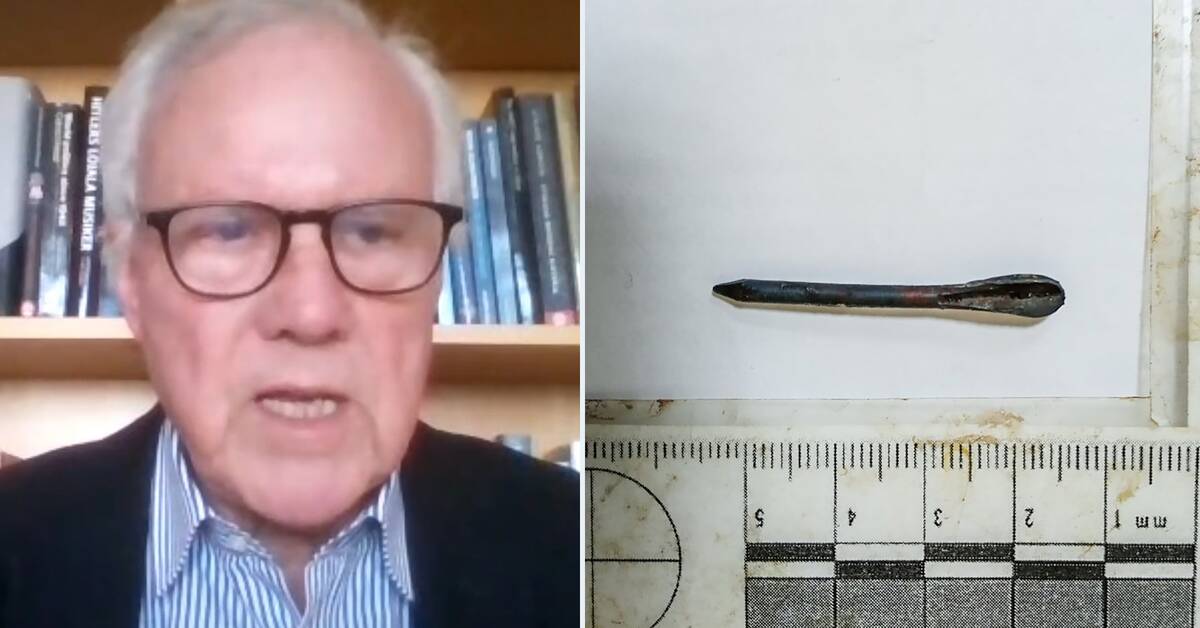The fugitives are said to have been found by Ukrainian doctors in Butja when the dead were examined in the city's mass graves, The Guardian reported on Sunday.
Ove Bring, together with a delegation from Sweden in the 70s and 80s, tried to ban the use of flechettes in war.
This during the arms conference in Geneva.
- We then argued, and others who supported us, that flechettes were an unnecessarily inhumane weapon that would in itself be banned according to the St. Petersburg Declaration of 1868, one of the first documents on the laws of war, he says.
A metal arrow that must have been found in one of the bodies in Butja.
Photo: Alessio Mamo / The Guardian
Not forbidden
But that did not happen.
There is currently no specific ban on using flechettes.
- On the other hand, in international law there is a general ban on weapons that create unnecessary suffering and unnecessary damage.
You could say that flechettes belong to that category, says Ove Bring.
He emphasizes that it is a crime in itself to attack civilians.
- It seems that they are used against civilians and it is the primary violation of the rules of international law.
Civilians should not be subjected to attacks, either by flechettes or other weapons.
Javascript is disabled
Javascript must be turned on to play video
Read more about browser support
The browser is not supported
SVT does not support playback in your browser.
We therefore recommend that you switch to a different browser.
Read more about browser support
Warning for very unpleasant images.
Photo: Emil Larsson / SVT

